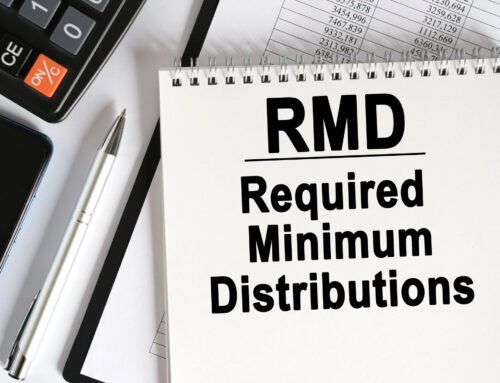
How you handle taxes and when you are taxed are two of the most important factors when it comes to retirement planning. If you are putting together the puzzle pieces of your retirement plan and you are curious about some strategies related to taxes and retirement, here are some possible options:
Consider a Roth IRA
Roth IRAs allow you to contribute to a certain type of account that is not taxed upon withdrawal as long as you withdraw after you are 59 ½ and the account has existed for 5 or more years. There are also Roth 401(k)s that have a similar tax treatment but are subject to some different rules.
This type of account can be useful for some because when you withdraw under qualifying circumstances, you do not pay taxes. Your contributions have already been taxed, meaning that your income tax owed for the year in which you contribute to a Roth IRA will not exclude the amount contributed.[1] This is different from a traditional IRA in that when you contribute to a traditional IRA, your income for that year is reduced by the amount you contributed to the account and is instead taxed during retirement at your income tax level during the time you withdraw it.[2]
If you are likely to be in a higher tax bracket when you retire, a Roth IRA can be a good way to minimize your taxes in retirement. Usually, non-Roth retirement accounts are taxed when they are withdrawn, so if you are in a higher tax bracket at the time of your retirement, accounts that require you to pay taxes on withdrawals will contribute to your tax liability at that time.[3]
Consider a Spousal IRA
If you are already contributing to an IRA and your spouse makes little to no income, it can be beneficial to set up a spousal IRA.[4] There are many rules regarding who is eligible for spousal IRAs, but if you qualify, doing so can be a key part of your retirement strategy. Spousal IRAs allow qualifying married couples to contribute up to $13,000 to IRAs annually in 2023 (or $15,000 if you are over 50 with catch-up contributions).[5] This basically allows an earning spouse to help contribute to a non-earning spouse’s retirement funds.
Consider Municipal Bonds
A municipal bond is a debt security that is offered by local, state, or county governments that are commonly used to help pay for projects in the area, such as school and road construction. They are similar to a loan in that the owner of the bond lends money to the government and is paid interest on the principal balance.[6] Municipal bonds, in particular, can be an attractive investment because they are often exempt from most taxes.[7]
Consider a Financial Advisor
A financial advisor can help you navigate various tax laws and recommend individualized strategies based on your situation. If you’re looking for someone to help guide you through your financial journey, reach out to one of our advisors today for a complimentary review of your situation.










